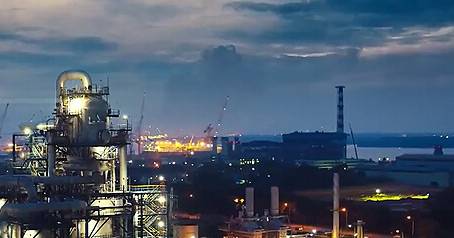nov . 11, 2024 01:18 Back to list
High-Density Polyethylene Pipes and Fittings for Durable and Efficient Water Systems
HDPE Pipes and Fittings The Ultimate Solution for Modern Infrastructure
High-Density Polyethylene (HDPE) pipes and fittings have become a cornerstone in modern infrastructure development, known for their durability, flexibility, and efficiency. With the increasing demand for reliable and sustainable piping solutions, HDPE products have found extensive applications in various sectors, including water supply, wastewater management, agriculture, and industrial processes.
What is HDPE?
HDPE is a thermoplastic polymer made from petroleum, characterized by its high strength-to-density ratio. This material is renowned for its resistance to impact, corrosion, and extreme temperatures, making it an ideal choice for piping systems that must endure harsh environmental conditions. The manufacturing process of HDPE involves polymerization, which results in a lightweight yet robust material capable of withstanding high pressures.
Advantages of HDPE Pipes
1. Durability and Longevity HDPE pipes have a lifespan exceeding 50 years under typical conditions, which makes them a cost-effective solution for both public and private utilities. The material's resistance to rust and corrosion further enhances its durability, minimizing the risk of leaks and system failures.
2. Flexibility One of the standout features of HDPE pipes is their flexibility. Unlike traditional rigid pipes, HDPE can bend without breaking. This allows for easier installation in challenging terrains and reduces the need for additional fittings, lowering the overall cost.
3. Lightweight HDPE pipes are significantly lighter than their metal counterparts, making them easier to transport and install. This reduces labor costs and the time required for installation, which is particularly beneficial for large-scale projects.
4. Resistance to Chemicals HDPE is resistant to a wide range of chemicals, including acids and bases. This property makes it suitable for various industrial applications where the fluid being transported may be corrosive.
5. Cost-Effectiveness Although the initial investment in HDPE pipes may be higher than traditional materials, the long-term savings from reduced maintenance and replacement costs make HDPE a more economical choice over time.
hdpe pipes and fittings

Applications of HDPE Pipes and Fittings
The versatility of HDPE has led to its widespread use in numerous applications
1. Water Supply Systems HDPE pipes are extensively used in municipal water supply systems. Their leak-free performance and resistance to corrosion ensure a safe and reliable water supply to communities.
2. Wastewater Management In wastewater systems, HDPE pipes effectively transport sewage and other waste liquids. The smooth interior surface of these pipes minimizes friction, allowing for efficient flow rates.
3. Agriculture HDPE fittings and pipes play a vital role in agricultural irrigation systems. Their flexibility and resistance to soil chemicals help farmers efficiently manage water resources, ultimately supporting sustainable agriculture.
4. Industrial Applications HDPE is increasingly used in various industries, including chemical processing and manufacturing, where robust piping solutions are required to transport hazardous materials without risk of leaks.
Sustainability and Environmental Impact
The growing emphasis on sustainable practices has further propelled the use of HDPE pipes and fittings. Being recyclable, HDPE contributes to reducing plastic waste in landfills. Additionally, the energy-efficient manufacturing processes and long lifespan of HDPE products align with global initiatives to minimize environmental impact.
Conclusion
As the world moves towards more sustainable infrastructure solutions, HDPE pipes and fittings stand out as the premier choice for numerous applications. Their combination of durability, flexibility, chemical resistance, and cost-effectiveness make them an essential component in the development of resilient water and wastewater systems, agricultural networks, and industrial processes. With continued advancements in polymer technology and increasing demand for urban development, HDPE will undoubtedly play a crucial role in shaping the future of global infrastructure. Whether for residential, commercial, or industrial use, the advantages of HDPE make it a wise investment in any project.
-
Premium PVC Soft Sheets: Clear, Flexible & Durable
NewsAug.12,2025
-
Premium PVC Round Rods: Durable, Chemical Resistant, Easy to Machine
NewsAug.11,2025
-
PP U-channel: Chemical-Resistant, Lightweight & Durable
NewsAug.10,2025
-
Transparent PVC Pipe: Clear Flexible Tubing for Fluids
NewsAug.09,2025
-
Durable PP Rigid Sheet: Versatile & High-Quality Plastic Panels
NewsAug.08,2025
-
Premium Glossy PP Rigid Sheet – Durable & Versatile
NewsAug.07,2025

